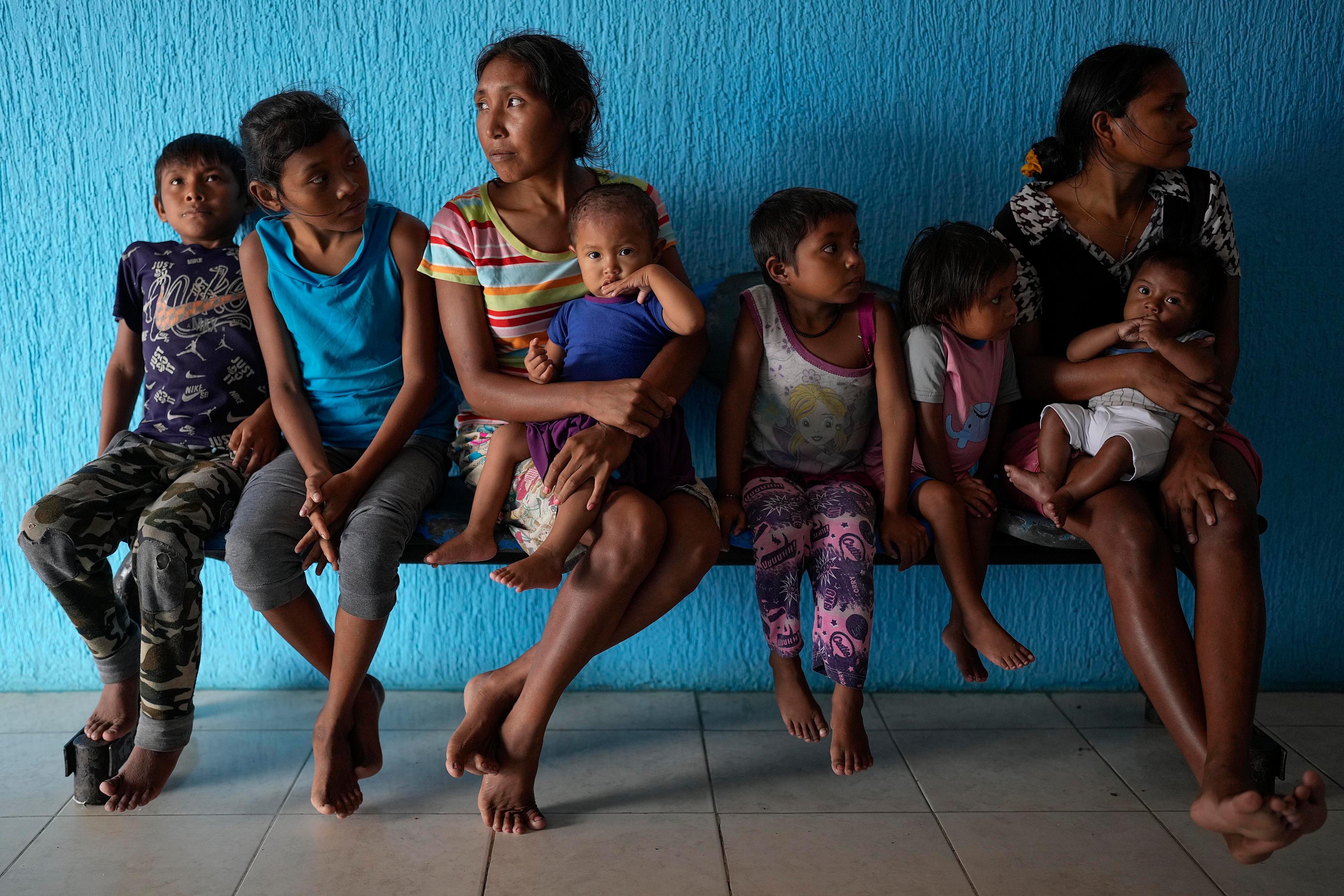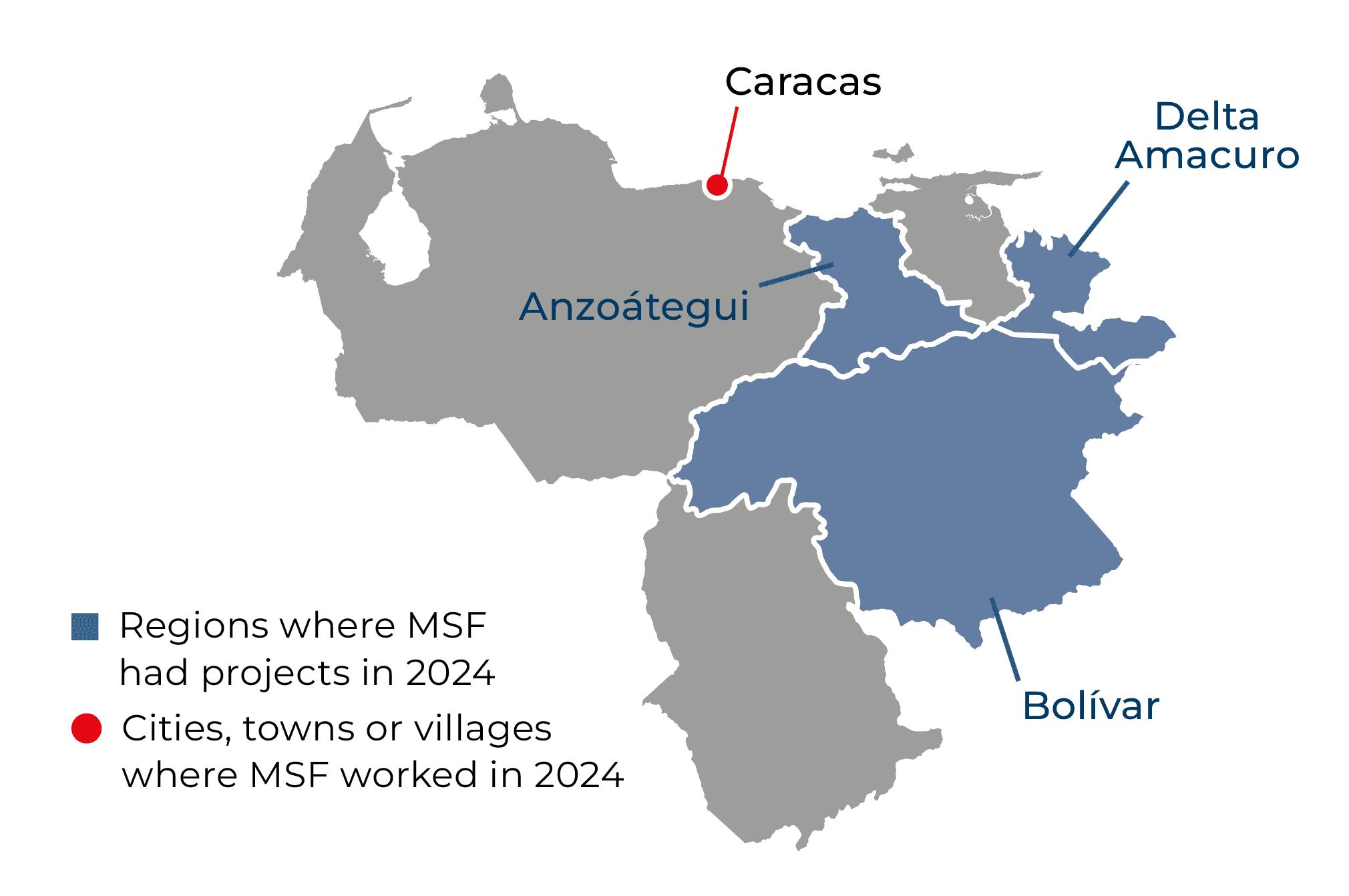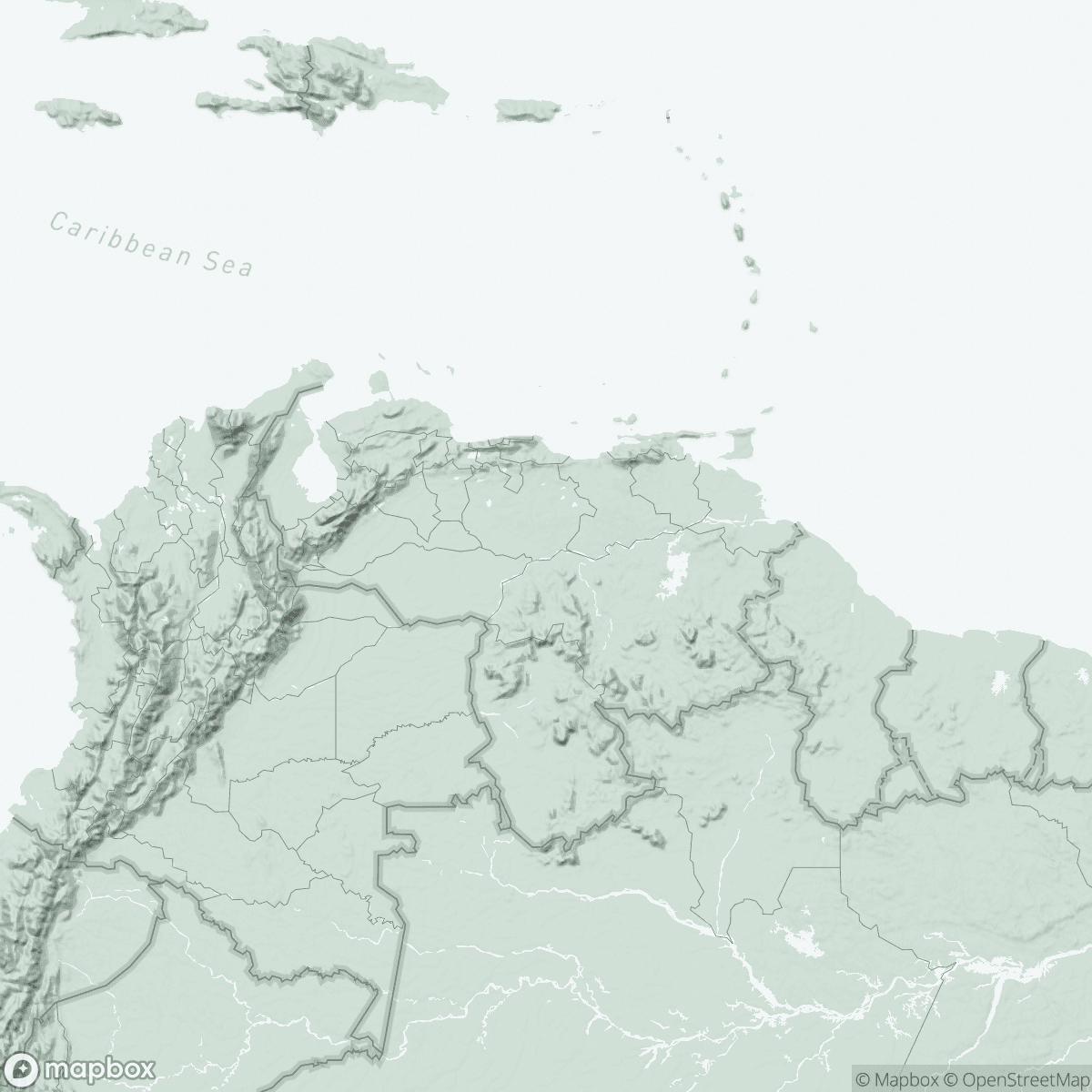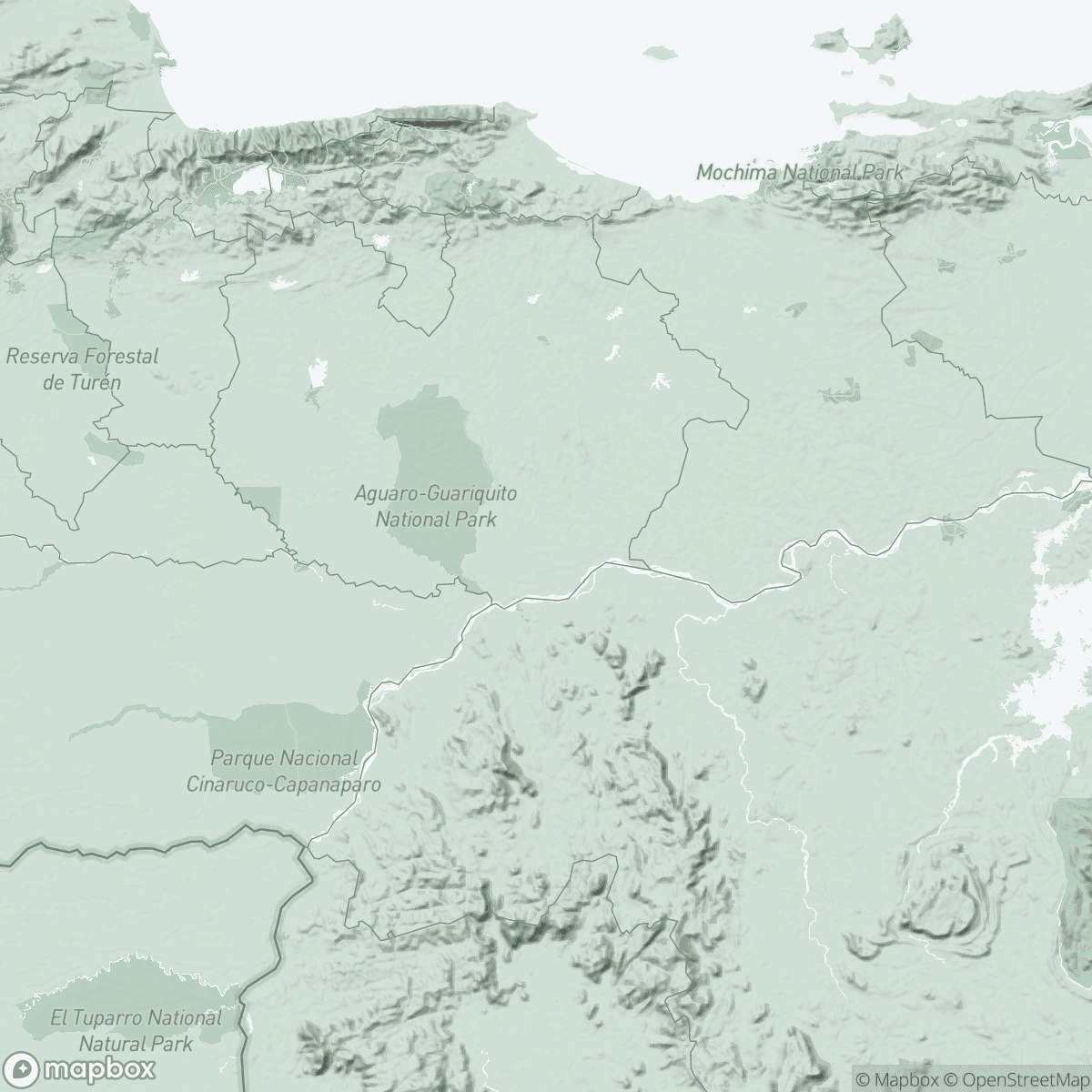
Venezuela
In Venezuela, Médecins Sans Frontières (MSF) worked across three states to help people overcome significant barriers to healthcare by providing essential medical services and supporting the local health system.
Our activities in 2024 —
outpatient consultations
consultations for contraceptive services
antenatal consultations
people treated for sexual violence
Our teams ran a range of activities to improve the provision of healthcare in Anzoátegui, Bolívar, and Delta Amacuro states, including sexual and reproductive health services, and treatment for malaria. We also donated medicines, trained healthcare workers, and rehabilitated health facilities.
In Anzoátegui, our teams offered basic healthcare, as well as sexual and reproductive health consultations, covering ante- and postnatal care, family planning, and treatment for victims and survivors of sexual violence, in several facilities across the state.

We worked in Bolívar until April, running a malaria programme, seeking to reduce the high incidence of the disease through early diagnosis, treatment, and health promotion. We also sent mobile clinics to remote areas, and ran a sexual and reproductive healthcare programme, with a special focus on family planning.
In Delta Amacuro, a difficult-to-access region crossed by many rivers and waterways, we continued to offer medical assistance to remote, mainly Indigenous, communities, who face numerous challenges due to their precarious living conditions and the lack of access to healthcare. Our teams donated medicines, trained health workers, and helped with the maintenance of medical facilities. We also ran water, hygiene, and sanitation activities, and supported a programme for HIV detection and treatment.

